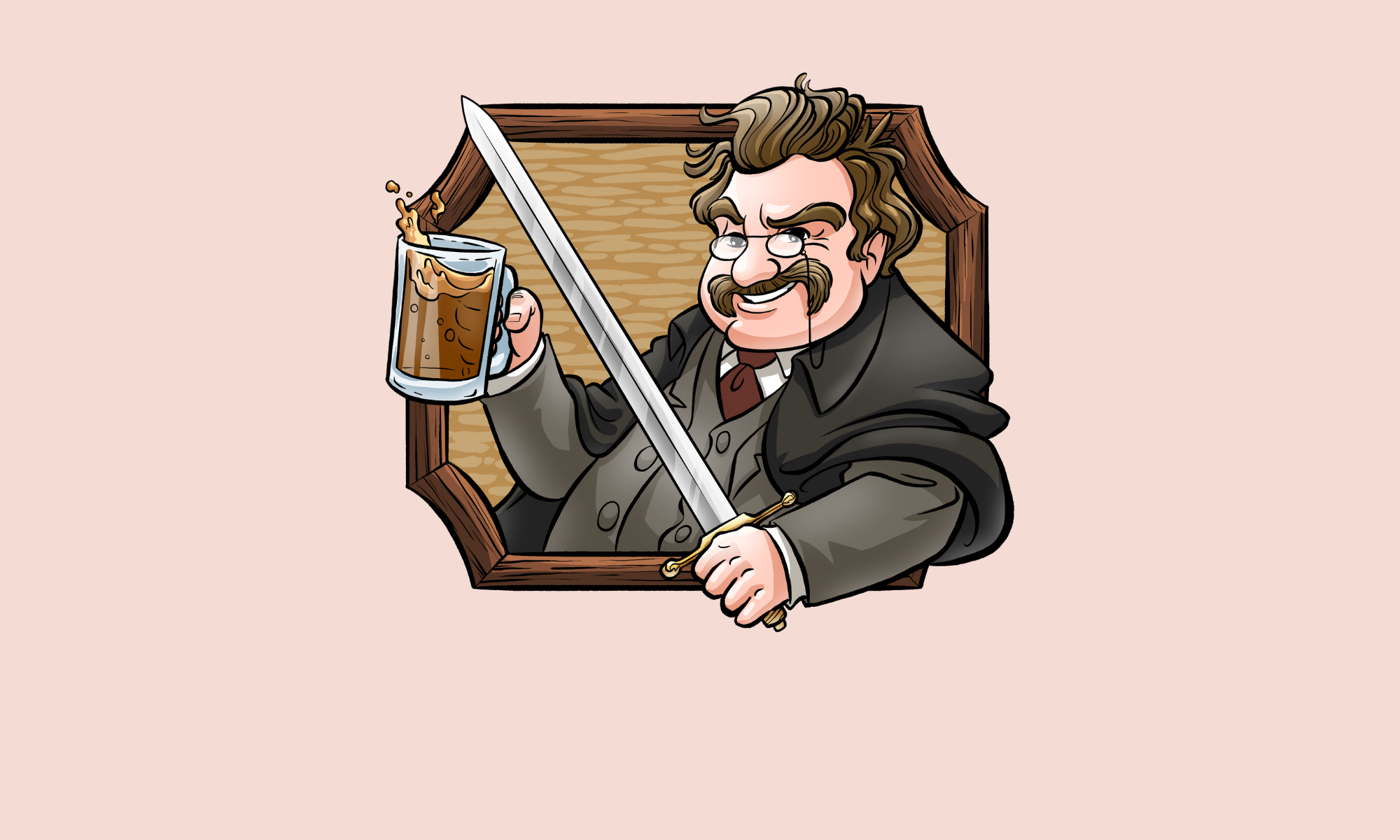I’d like to introduce you to one of my favorite (so far) of Gilbert Chesterton’s essays, On Lying in Bed.
We live in a world which loves to note and take record of progress being made. Whether we like it or not, many of us are swept up daily into the model of efficiency that modern society has deemed the appropriate and best way to live.
It is not unusual to hear the question, “What did you do today?” or, in response to, “How was your day?” to hear, “I was able to get quite a lot done today…” followed by a list of tasks and projects accomplished.
Work is not bad, far from it. St. Paul says, “For even when we were with you, we would give you this command: If anyone is not willing to work, let him not eat. For we hear that some among you walk in idleness, not busy at work, but busybodies. Now such persons we command and encourage in the Lord Jesus Christ to do their work quietly and to earn their own living.” (2 Thessalonians 3:10-12)
It is a truth universally acknowledged (forgive me for stealing that, Jane) that work and working hard are good and necessary aspects of life.
What Gilbert is presenting in “On Lying in Bed” is utterly delightful. He is not saying that work is bad or should not be done, however, he is saying that there is benefit in leisure and, even more so, in giving no defense or explanation of it. God works in us in many ways, not only when we are working, but also when we are lying in bed.
In this essay, Gilbert hilariously discusses his thoughts on the travesty of home decor that has no meaning and leaves no blank space for him to indulge his imagination or to create something meaningful. He sees the patterned wallpaper and the ornate rugs as a tragedy and a missed opportunity to say something with “religious or philosophical significance.”
Gilbert says that in spending time lying in bed, he made the discovery that the ceiling above was the perfect blank canvas for which he had searched. He tells us how much he would love to have a colored pencil long enough to draw on the stark whiteness of his ceiling, though he was discouraged to do so by an unnamed personage. I sincerely hope it was Frances and that she had a great laugh when he mentioned his idea.
At the end of this very brief essay, he says the following:
“The caution is this: if you do lie in bed, be sure you do it without any reason or justification at all. I do not speak, of course, of the seriously sick. But if a healthy man lies in bed, let him do it without a rag of excuse; then he will get up a healthy man. If he does it for some secondary hygienic reason, if he has some scientific explanation, he may get up a hypochondriac.”
He claims that he wouldn’t have made this wonderful discovery of the ceiling had he not taken the time to lie quietly in bed– that Michelangelo would not have realized the necessity of attempting the heavens on the Sistine Chapel ceiling, had he not reposed in bed.
Gilbert perfectly mixes silliness with important truth as he tells us of the importance of allowing time for creativity and a lack of outside stimulation.
In an age overwhelmed by technology, screens, constant content and media in our eyes and ears, do we take the time to lie in bed and imagine? Do we take the time to notice those blank spaces around us?
We are not automatons of efficiency, we are flesh and spirit, human beings with much deeper needs and abilities than the modern world preaches in its secular ideologies. We have been given the gift of being adopted sons and daughters of an infinite God. He invites us into his Creativity and imagination. Will we accept his invitation and draw on the white ceilings of our lives?
–Marie




